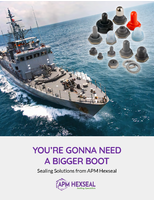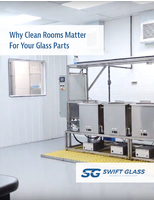AAMA updates testing options within flashing specification.
Press Release Summary:
AAMA 712-14, Voluntary Specification for Mechanically Attached Flexible Flashing establishes minimum performance criteria to allow user to evaluate and select mechanically attached flexible flashing products intended for exterior perimeter of fenestration products. AAMA 712 calls for laboratory testing per ASTM methods to verify performance parameters, including tensile strength, water resistance, low-temperature flexibility, puncture resistance, tear resistance, and accelerated UV aging.
Original Press Release:
AAMA Updates Testing Options within Flashing Specification
Schaumburg, Ill. – The American Architectural Manufacturers Association (AAMA) has published an updated standard for flashing. AAMA 712-14, "Voluntary Specification for Mechanically Attached Flexible Flashing" establishes minimum performance criteria to allow the user to evaluate and select mechanically attached flexible flashing products intended for use around the exterior perimeter of fenestration products.
As a basic component for integrating a fenestration product with a building’s water resistant barrier (WRB), appropriate material specifications for flashing play an important role in planning for effective and reliable installation. Accordingly, AAMA publishes consensus standards for self-adhesive flashing (AAMA 711), mechanically attached flashing (AAMA 712) and liquid-applied flashing (AAMA 714).
AAMA 712 calls for laboratory testing per ASTM methods to verify several performance parameters of mechanically attached flashing:
Tensile strength
Water resistance
Low-temperature flexibility
Puncture resistance
Tear resistance
Accelerated UV aging
AAMA updates testing options within flashing specification
The changes to AAMA 712 were instituted primarily to coincide with those made to the similar AAMA 711, which was published in July 2013 by the Flashing Task Group.
“The test method for accelerated UV aging is the focus of the most significant change made to both AAMA 712 and the earlier release of AAMA 711,” says Jim Katsaros (DuPont Laminating Solutions), chair of the Flashing Task Group. “The change adds a modified version of the ASTM G155 Xenon Arc Test as an alternative to the ASTM G154 test method. This provides manufacturers and test laboratories with more flexibility in conducting the required test and, according to AAMA approved component labs, results in a better representation of actual sunlight exposure.”
ASTM G154-12a, "Standard Practice for Operating Fluorescent Ultraviolet [UV Lamp Apparatus for Exposure of Nonmetallic Materials" and ASTM G155-13, "Standard Practice for Operating Xenon Arc Light Apparatus for Exposure of Non-Metallic Materials" are intended to induce changes in the material brought on by simulated and accelerated exposure to end use conditions, including the effects of solar UV light, moisture and heat.
They are not intended to simulate the deterioration caused by localized weather phenomena, such as atmospheric pollution, biological attack and saltwater exposure. The difference, as their titles indicate, is that G154 is based on the use of UV light from one of several listed fluorescent sources, while G155 utilizes a filtered xenon arc lamp source with different filter combinations as described.
With the update of AAMA 712 complete, the Flashing Task Group has initiated the process for updating AAMA 714-11 with the purpose of administering a much broader revision.
AAMA 712-14, "Voluntary Specification for Mechanically Attached Flexible Flashing" is available in AAMA’s Online Publication Store.
More information about AAMA and its activities can be found via the AAMA Media Relations page or on the AAMA website, www.aamanet.org.
AAMA is the source of performance standards, product certification,
and educational programs for the fenestration industry.sm
Media contacts:
Angela Dickson, marketing manager, AAMA
Email: adickson@aamanet.org; 866-985-7510




